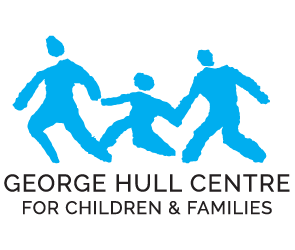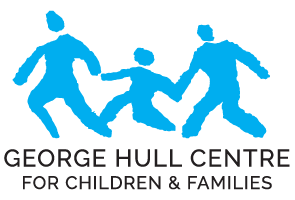Contact Us 416-622-8833
About the FGC Mentorship Process
The FGC Mentorship Process is designed to develop the knowledge and skill base of Coordinators in Training in facilitating FGC’s. It is a collaborative and cooperative practice between a Mentor and a Mentee. The mentorship is structured as a graduated system in which the mentee will first observe their mentor, and then the mentor will observe the mentee.
Availability of mentorship is dependent on the availability of mentors, which may vary from time to time and from region to region. The Provincial Resource office can provide information about mentors available in your region. The length of the mentorship is dependent upon many factors, including but not limited to the skills of the mentee, geography, availability of mentee/mentor and consent of participating families.
Mentorship Goals and Objectives
- To assist the prospective coordinator in developing a comprehensive understanding of the entire FGC process.
- To provide the prospective coordinator with opportunities to observe the FGC process through a range of experiences, so that he/she is ready to coordinate a conference independently.
- To allow the prospective coordinator to successfully integrate and apply the guiding FGC principles and philosophy into all aspects of their practice.
- To provide support, consultation and/or supervision to the prospective coordinator.
To observe and interact with the prospective coordinator so that an informed judgment can be made about the prospective coordinator’s ability to coordinate the conferencing process independently.
Criteria for Selecting Candidates for Mentorship
- Successful completion of the three-day FGC Coordinator Training Program within past 24 months.
- A post-secondary educational qualification in human services from an accredited college or university or equivalent.
- A minimum of five (5) years of experience and demonstrated ability in working with families and children.
- Registration (or eligibility for registration) with the college or regulatory body governing their profession where applicable.
- An understanding of and experience interfacing with the child welfare system in order to sufficiently inform families about how the system functions.
- An understanding of domestic violence risk assessment and management and/or experience of domestic violence dynamics and best practice.
- Knowledge and experience in working with marginalized populations.
- Experience in facilitating large groups and creating an environment of trust, collaboration and safety.
- Ability to be flexible and adjust to changing, challenging environments.
- Willingness and ability to work daytime, evenings and weekends to maintain service delivery.
- Strong organizational competency and self-directive abilities.
- Strong computer literacy skills, as well as strong oral and written communication skills.
- Commitment to continuing personal and professional development.
Throughout the Mentorship Process, the Mentee will:
- Be mentored/supervised through all stages of an FGC/FGDM process, involving as many cases as required.
- Have only one mentor, with the discretion to designate the prospective coordinator reciprocal shadowing to another experienced FGC/FGDM coordinator when applicable.
- Initially, shadow the mentor and then be shadowed by the mentor through the following aspects of the FGC/FGDM process while receiving ongoing supervision/consultation throughout the mentorship process.
- Referral, consents and confidentiality agreement.
- Facilitating summary writing and developing the child welfare statement and concerns, including bottom lines, in strength-based language.
- Preparing various participants, such as family members, children, service providers/professionals, foster parents, child welfare staff in face to face meetings.
- Addressing and supporting the creation of safety at all stages of the conferencing process.
- Collaborating with the Office of the Children’s Lawyer (OCL) and Band representatives.
- Understanding the importance of cultural diversity.
- Utilizing guest speakers.
- Managing the logistics of conference coordination.
- Completing all administrative, recording and accountability duties and procedures.
- Reviewing and assisting in editing service provider reports, including child welfare report, as required.
- Facilitating an actual conference.
- Completing and distributing the written family plan.
Due to geographical constraints, teleconferencing, video conferencing and other creative options may be used to shadow the prospective coordinator contacts and the conference coordination process. The mentor must be physically present when the mentee facilitates his/her first conference.
Completing the Mentorship
Mentorship is successfully completed with a recommendation form and letter from the mentor to the Provincial Resource office indicating that the mentee has acquired the necessary FGC coordinator skills and experiences and is deemed capable of coordinating conferences independently. Additional qualifiers may accompany the recommendations.
The recommendation letter must include a supervision/consultation support plan to be put in place for all newly rostered FGC coordinators.
The FGC Provincial Resource office, in consultation with the mentor, is responsible for the registration and roster posting of the new FGC Coordinator.
Please note: Mentees cannot coordinate conferences independently until the mentorship is completed and they are registered on the Provincial Roster of Coordinators.
Moving from Virtual to Full-Service Delivery
For those FGC Coordinators who were mentored virtually during the COVID 19 pandemic and joined the FGC Coordinators’ Roster when service was all virtual, there are mentorship processes you need to complete to have the ‘VIRTUAL’ designation removed from your name on the FGC OPR Coordinators’ Roster.
Much like in your initial Mentorship there are key points in the in-person service process are important for you observe your Mentor lead and for your Mentor to observe you lead. There is no set limit on the number of meetings you will need to observe and demonstrate – your mentor will work with you to ensure you have the required level of confidence and competency to complete your mentorship.
Observation Phase
- Observe in-person primary caregiver preparation meeting
- Observe an in-person child and/or youth preparation meeting
- Observe an in-person FGC Conference
Demonstration Phase
- Demonstrate in-person primary caregiver preparation meeting
- Demonstrate an in-person child and/or youth preparation meeting
- Demonstrate an in-person FGC Conference
Once both phases and all sections have been completed, you, and your Mentor will complete the FGC OPR ‘Virtual – Full’ form and statement of support and submit them to the Ontario Provincial Resource and your Transfer Payment Agency Manager. Once the OPR has received both the form and statement of support, the ‘VIRTUAL’ designation will be removed next to your name on the FGC OPR roster.

